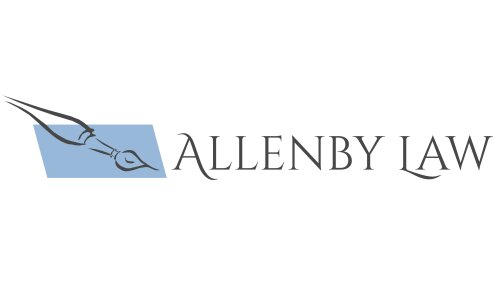Best Nonprofit & Charitable Organizations Lawyers in Fort McMurray
Share your needs with us, get contacted by law firms.
Free. Takes 2 min.
List of the best lawyers in Fort McMurray, Canada
About Nonprofit & Charitable Organizations Law in Fort McMurray, Canada
Nonprofit and charitable organizations in Fort McMurray, Canada, play a crucial role in providing valuable services and support to the community. These organizations are typically formed to promote philanthropic goals, public welfare, or enhance certain societal values without the primary objective of making a profit. They can include a wide range of entities such as charities, foundations, cooperatives, and other types of not-for-profits that operate in areas like education, health, community development, and more.
Operating a nonprofit in Fort McMurray requires compliance with both federal laws-administered by the Canada Revenue Agency (CRA)-and provincial laws that oversee incorporating and governance structures of these entities. Navigating these regulations can be complex, necessitating a clear understanding of both legal and operational requirements.
Why You May Need a Lawyer
Individuals or groups involved with nonprofits may find themselves in situations where legal advice is essential. A lawyer specialized in nonprofit and charitable organizations can provide guidance in the following circumstances:
- Incorporating a nonprofit or charitable organization and drafting articles of incorporation.
- Applying for charitable status with the CRA to receive tax benefits and remain compliant with tax laws.
- Navigating changes in laws that impact nonprofit operations and governance.
- Advising on employment law issues unique to nonprofit staff and volunteers.
- Ensuring compliance with reporting and regulatory obligations.
- Handling disputes involving the organization, including internal governance or with external parties.
- Facilitating mergers or dissolutions of nonprofit entities.
Local Laws Overview
Fort McMurray, situated in Alberta, follows both federal and provincial regulations regarding nonprofit and charitable operations. Here are key aspects to consider:
- Alberta's Societies Act governs the incorporation, governance, and maintenance of nonprofit entities.
- Nonprofit organizations seeking charitable status must meet the criteria set by the CRA, which includes operating solely for charitable purposes and ensuring no profits benefit members personally.
- Nonprofits must adhere to the Personal Information Protection Act (PIPA) in Alberta for managing personal information.
- Employment relationships must comply with Alberta’s employment standards, even for nonprofit organizations.
Frequently Asked Questions
What is the process to start a nonprofit organization in Fort McMurray?
To start a nonprofit in Fort McMurray, one needs to incorporate under Alberta’s Societies Act, draft organizational bylaws, and apply for charitable status with the CRA if they wish to obtain tax-exempt status.
What tax obligations do nonprofit organizations have in Canada?
Nonprofits have specific reporting obligations with the CRA but may be exempt from paying taxes if they have charitable status. They must file an annual return providing financial and operational information.
What are the benefits of having charitable status?
Charitable status allows organizations to issue tax-deductible receipts to donors, increasing the potential for funding. It also often provides grants and other financial supports more accessible.
How can our nonprofit ensure compliance with Alberta's employment laws?
It’s essential for nonprofits to understand and follow Alberta’s Employment Standards Code, ensuring fair treatment, proper wages, and safe working conditions for employees.
Can a nonprofit organization operate solely with volunteers?
Yes, many nonprofits operate primarily with volunteers, but they must still comply with certain labor laws and volunteer agreements.
What is the role of a board of directors in a nonprofit organization?
The board of directors governs the nonprofit, overseeing the management, ensuring accountability, and aligning activities with the organization's mission and bylaws.
How can we apply for funding as a nonprofit?
Nonprofits can apply for grants from government programs, private foundations, and corporate sponsorships. Each source has different application processes and criteria.
What records do nonprofits need to maintain for compliance?
Nonprofits are required to maintain detailed records of financial transactions, board meeting minutes, member registers, and other documentation that proves compliance with legal obligations.
Are nonprofit organizations required to undergo audits?
While not always mandatory, audits are often required for large nonprofits and those seeking certain types of funding. It’s a best practice for transparency and accountability.
Can a nonprofit organization in Fort McMurray engage in commercial activities?
Nonprofits can engage in commercial activities provided that the profits support the nonprofit’s objectives and purposes. However, these activities must not become the primary focus.
Additional Resources
The following resources can provide further assistance and information:
- Canada Revenue Agency (CRA): Offers guidance on registering and maintaining compliance as a charitable organization.
- Alberta Government’s Service Alberta: Provides resources and information on incorporating and managing nonprofits under the Societies Act.
- Volunteer Alberta: Supports organizations with volunteer management and development resources.
- Imagine Canada: Offers resources and accreditation for charities and nonprofits.
Next Steps
If you seek legal assistance regarding nonprofit and charitable organizations in Fort McMurray, consider the following steps:
- Contact a lawyer specializing in nonprofit and charitable law to discuss your organization's needs and challenges.
- Gather necessary documentation relating to your organization to provide a clear overview to your legal advisor.
- Stay informed about local and federal laws affecting nonprofit operations by subscribing to relevant newsletters or joining industry associations.
- Consider participating in workshops or training sessions on nonprofit governance and compliance offered by local organizations or online platforms.
Lawzana helps you find the best lawyers and law firms in Fort McMurray through a curated and pre-screened list of qualified legal professionals. Our platform offers rankings and detailed profiles of attorneys and law firms, allowing you to compare based on practice areas, including Nonprofit & Charitable Organizations, experience, and client feedback.
Each profile includes a description of the firm's areas of practice, client reviews, team members and partners, year of establishment, spoken languages, office locations, contact information, social media presence, and any published articles or resources. Most firms on our platform speak English and are experienced in both local and international legal matters.
Get a quote from top-rated law firms in Fort McMurray, Canada — quickly, securely, and without unnecessary hassle.
Disclaimer:
The information provided on this page is for general informational purposes only and does not constitute legal advice. While we strive to ensure the accuracy and relevance of the content, legal information may change over time, and interpretations of the law can vary. You should always consult with a qualified legal professional for advice specific to your situation.
We disclaim all liability for actions taken or not taken based on the content of this page. If you believe any information is incorrect or outdated, please contact us, and we will review and update it where appropriate.









